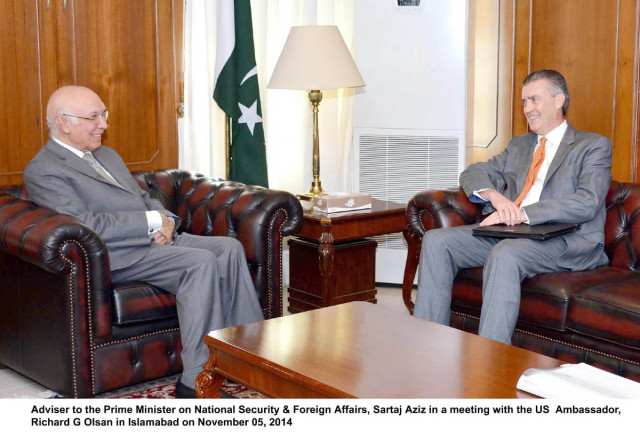In Pakistan’s self-interest
Perhaps, what we are doing in our self-interest is being perceived by our accusers as not being in their self-interest

Let us take a closer look at our changing self-interests vis-a-vis Afghanistan. We had assumed, because of past experience, that like in the late 1980s, the US would walk away with the job in Afghanistan half-finished, leaving us to face the aftermath of the other dirty half. Indeed, in 2010-11, the occupying armies were being perceived to have all but lost the war. One felt sooner or later, the US would leave Afghanistan with the Afghan Taliban still unvanquished and Pakistan left with no option but to deal with a re-Talibanised Afghanistan. Therefore, Pakistan, perhaps feeling that in its own strategic interest it needed to remain on the right side of the Afghan Taliban, was seemingly persuaded to continue with the policy of not interfering with cross-border militant activities, including those of the Haqqanis. However, the changing ground realities during the intervening years and anticipating the April presidential polls to open a new window of opportunity, Pakistan effectively secured the Durand Line, making it impossible for the Afghan Taliban hiding on our side of the border to cross over and disrupt the Afghan polls.
Next, Islamabad seems to have read and clearly understood the Bilateral Security Agreement (BSA) signed between Afghanistan and the US. Declaring the US intention to establish its permanent presence in the region, the BSA reassured Pakistan that this time, the US was not walking away with the job half-finished. At the same time, the BSA’s warning that Washington and Kabul would work together to develop “an appropriate response”, against any external aggression perhaps, made the decision for Pakistan to go after the militants hiding in North Waziristan easy as it was perhaps, realised gradually by the relevant quarters here that the chances of the Afghan Taliban regaining their lost glory were fading fast. Indeed, the Pentagon report acknowledges the Operation Zarb-e-Azb campaign, saying it had disrupted militant networks and slowed extremist attacks in Afghanistan.
Now let us take a quick look at our self-interest vis-a-vis India. Here, too, we were opting for a qualitative change, but at a slower pace until the advent of Prime Minister Narendra Modi, under whose leadership it is clear that India will harbour a needlessly tough stance towards Pakistan. Still, it would be in our lasting self-interest if we played our part in dismantling private jihadi groups. These outfits have only succeeded in damaging our Kashmir case and have hurt the indigenous freedom movement in the Valley, and have also led to a sectarian and ethnic bloodbath inside the country. Meanwhile, despite the continuous violations of the Line of Control, let us not abandon our efforts to establish bilateral trade and economic relations with India as it is very much in our permanent mutual self-interest.
Published in The Express Tribune, November 9th, 2014.
Like Opinion & Editorial on Facebook, follow @ETOpEd on Twitter to receive all updates on all our daily pieces.














COMMENTS
Comments are moderated and generally will be posted if they are on-topic and not abusive.
For more information, please see our Comments FAQ